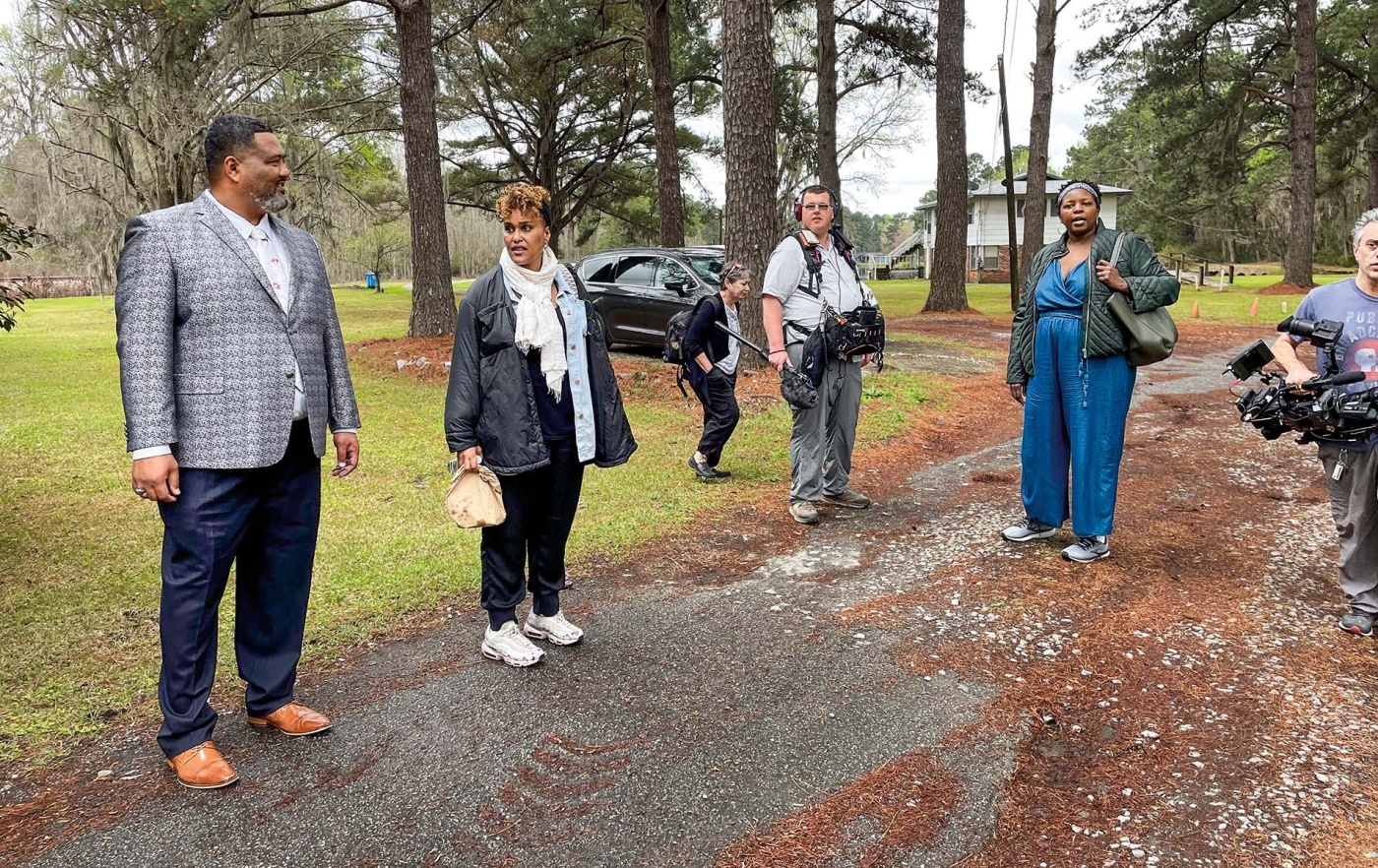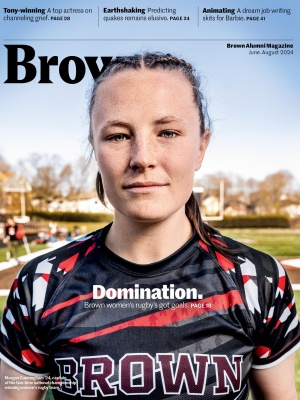The U.S. government famously promised “Forty acres and a mule” to people recently freed from slavery in 1864. This early experiment in reparations lasted all of one year, as chronicled in a stirring documentary from Yoruba Richen ’94, The Cost of Inheritance. The film, which debuted at DOC NYC last year and can now be seen on PBS’s YouTube channel, spends time with Black activists advocating for compensation as well as white descendants of slave owners striving to make amends for past injustices. “Often [in documentary films] we only hear the side of the oppressed or the victimized,” Richen says. “But in order to remedy, or attempt to remedy, inequities, we also have to understand the stories of power because we’re dealing with a shared history.”
Richen was tapped for The Cost of Inheritance on the strength of her formidable body of Emmy- and Peabody-nominated work. Richen, who also teaches at CUNY’s Craig Newmark Graduate School of Journalism, has explored everything from Black food (High on the Hog) and Harry Belafonte to the Green Book travel guide, Rosa Parks, and missing people of color. She interviewed Barack and Michelle Obama for a companion piece to the Oscar-winning American Factory and won a 2020 NAACP Image Award for directing The Killing of Breonna Taylor. One through line: “I’m very interested in history from the margins—that’s actually a phrase I learned at Brown from Professor Carolyn Dean—because from a very young age, I felt that our voices and our stories were not being told or they were being told incorrectly.”
Richen, who’s now working on a PBS American Experience project about the Wilmington Insurrection of 1898, cultivated her storytelling skills acting in For Colored Girls and other Brown student productions. “Having an acting background has been helpful because in theater you learn to connect with your character and figure out the story you’re trying to tell. It’s a similar thing in documentary filmmaking. I tell my students, you can have a great idea, but no one wants to be lectured to. We want a story!”
After graduation, Richen earned a master’s in urban planning from UC Berkeley. There, she teamed with former Brown classmate Christina Hanhardt ’94 and found her calling. “We made a video about welfare reform changes and that’s when the bug hit me,” Richen recalls. “‘Oh, I can combine all the things I’m interested in: research, policy, figuring out how to tell a story creatively, interviewing people.’ We did another film the next year and I was hooked.”






